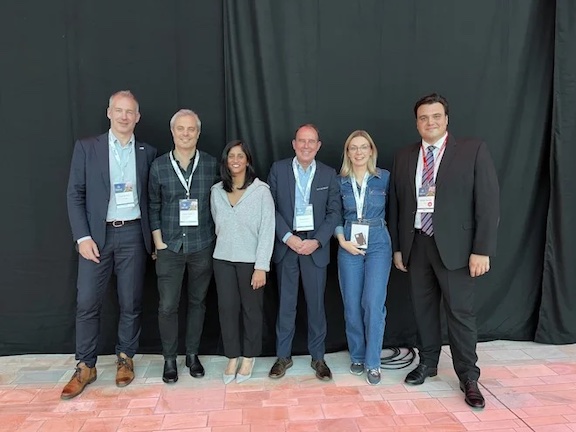The successful adoption of artificial intelligence (AI)-driven technology will rely on developing solutions that enable forwarders and customs brokers to prioritize human connections, said James Coombes, Chief Executive Officer (CEO) and Co-Founder, Raft, at The International Air Cargo Association (TIACA) Executive Summit yesterday.
Coombes stressed that freight forwarding is ultimately a relationships business, highlighting that AI exists to free up time for forwarders and customs brokers to focus on the human elements of their work
“The connections we build with our service providers, customers, and partners are invaluable and irreplaceable.

“Our approach is to use AI to automate the more routine, lower-value tasks, allowing freight forwarders and customs brokers to concentrate on nurturing and enhancing these crucial relationships.”
The importance of developing safe, human-centric, and trustworthy AI was recognized and endorsed by the Bletchley Declaration, signed by multiple countries at the UK’s AI Safety Summit last week.
Coombes explained that a human-centric approach ensures that the expertise of forwarders and customs brokers is complemented by the AI solutions they are using.
This enables critical thinking, creativity, and new levels of customer service to take priority.
“With this understanding, freight forwarders and customs brokers can take small steps to implement AI to address their operational pain points, recognize the immense value of this, and slowly build and scale their use of modern technology from there,” said Coombes.
Raft’s Chief Growth Officer Lionel van der Walt also spoke on the ‘Sustainability’ panel at the summit, emphasizing the benefits of adopting AI-driven solutions to prepare for upcoming sustainability regulations coming into effect across the EU in January 2024.




_1_-_127500_-_7bb83b056e5b092b5080f9955525c4bade76e092_lqip.jpg)



_1_-_127500_-_6f43ef1ccac53dae9cfc0db354eb94686fcf0d19_lqip.png)
